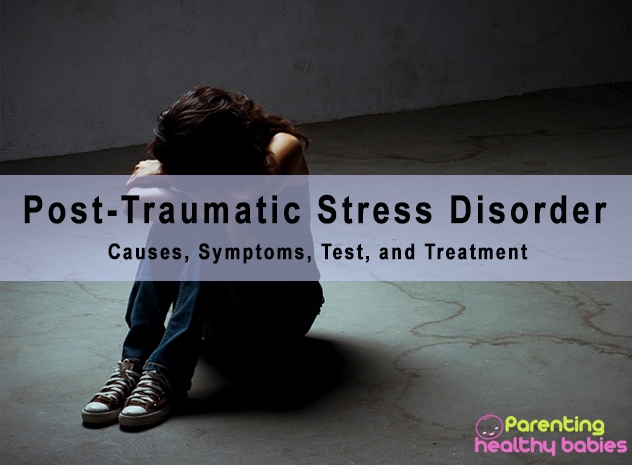Do your suspect that you are suffering from PTSD? You have hit the right page. Read on for more information on causes and symptoms of the condition. We also take you through the tests conducted as well as the treatment for PTSD in a nutshell.
Post-Traumatic Stress Disorder – Causes, Symptoms, Test, and Treatment
Post-traumatic stress disorder (PTSD), also previously known as battle fatigue or shell shock is a serious condition that can develop after a person has witnessed or experienced a terrifying or a traumatic event with threat or serious physical harm. PTSD is a long-lasting consequence of traumatic ordeals that lead to intense fear, horror, or helplessness, like the unexpected death of a loved one, physical or sexual assault, war, an accident, or natural disaster.
Causes of Post-Traumatic Stress Disorder
Any person can develop PTSD when he/she goes through or experiences life threatening events, serious injury, or sexual harassment.
Doctors are, however, not so sure about why some people experience PTSD. Just like other mental ailments, PTSD is usually caused by a complex mix of factors like:
- Inherited mental risks, like family history of depression and anxiety.
- Stressful experiences, such as the severity and amount of trauma one has gone through in life.
- Inherited features of one’s personality – often known as temperament.
- The way brain regulates the hormones and chemicals released by the body in response to stress.
Symptoms of Post-Traumatic Stress Disorder
The symptoms of PTSD begin to show within a month after the traumatic event. However, symptoms might not appear as clearly until years after the event. They might also come and go over the passage of time. If, in any case, the symptoms last for more than a month and cause great distress while interfering with home and work life, it’s time to see a doctor or a counselor.
The main symptoms, classified into four different types, of PTSD are:
- Reliving the Event
- Avoiding Situations that Remind about the Event
- Feeling Keyed up
You might feel alert or on the lookout for danger. This is also referred as increased emotional arousal. It can cause mood swings like:
- Difficulty sleeping
- Poor concentration
- Sudden anger or irritated mood
- Reckless behavior or think about hurting yourself
- Getting startled at being surprised by someone
- Fear about safety and feels on guard always
- Feeling Bad about yourself and others
It might become difficult to express the inner feelings. This is one of the ways to avoid memories.
- You may feel like forgetting about parts of the traumatic event or not talk about it.
- You might blame yourself for the incident. Feelings of guilt, shame, or fear are common.
- You may lack loving or positive feelings towards other people and try to stay away from relationships.
Diagnosing Post Traumatic Stress Disorder
As per research studies conducted by neurologists and doctors, there are numerous ways to diagnose PTSD through checklists and evaluations. These evaluations rely completely on the victim’s self-report as well as functional MRI imaging and psycho-physiological techniques.
To diagnose post-traumatic stress disorder, the doctor will:
- Perform a psychological evaluation
- Perform a physical exam
- Use the criteria in the Diagnostic and Statistical Manual of Mental Disorders (DSM-5), published by the American Psychiatric Association
Diagnosis of PTSD needs exposure to an event that involved possible or actual threat to life, serious injury, or violence. Some of the ways for exposure include:
- Direct experience of the traumatic event
- You have been a witness of a traumatic event occurring to others
- Learned about a relative who experienced the traumatic event
- You are exposed repeatedly to graphic details of traumatic event.
Treatment of Post-Traumatic Stress Disorder
The treatment for PTSD helps you regain the sense of control over your life. Usually PTSD is treated through psychotherapy. However, sometimes medication is also added depending upon the condition of the patient. Proper combination of these treatments can help to improve the symptoms by:
- Teaching you skills to recognize your symptoms
- Helping you have a better perception about yourself and others
- Learning ways to cope with recurring symptoms
- Treating other problems related to traumatic experiences, like anxiety, depression, or misuse of drugs or alcohol
Different types of medications to improve symptoms of PTSD include:
- Prazosin
This medicine is prescribed in case of symptoms like insomnia and recurrent nightmares.
- Antidepressants
These medicines help to reduce symptoms of depression and anxiety. These also help to improve sleep problems and concentration.
Treating PTSD is teamwork of the doctor and the patient to figure out the best medication with minimal side effects for your situation and symptoms.
